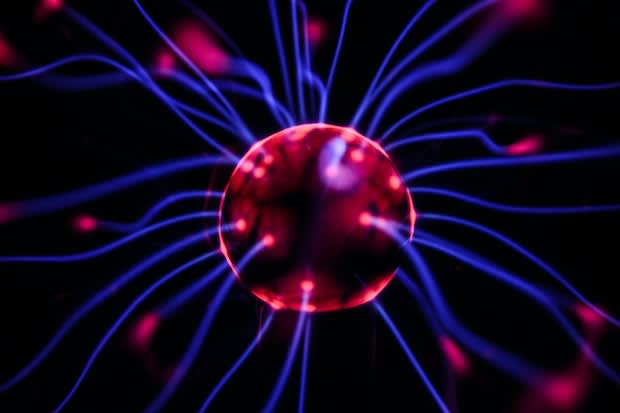Table of Contents
II. Symptoms of Bipolar Disorder
III. Possible Causes of Bipolar Disorder
IV. Diagnosing Bipolar Disorder
Understanding Depression
Everyone feels down sometimes, but extended periods of low mood can turn into a serious disorder called depression. Depression involves long bouts of symptoms that begin to interfere with your everyday life and relationships. There are several types of depression, and bipolar disorder is one type that may lead to symptoms of psychosis.
Bipolar is a fairly common disorder, occurring in 2.8 percent of adults in the United States. [1] Depression is related to bipolar disorder because of the extreme mood shifts that characterize this disease. Moods shift between emotional highs (mania) and severe emotional lows (depression). Bouncing back and forth between these emotions can make it challenging to manage tasks at school or work. Common depressive symptoms can include:
- Sleep disturbances
- Tiredness or lack of energy
- Anxiety or agitation
- Feelings of sadness
- Angry outbursts
- Unexplained physical problems [2]
This mental health disorder can lead to symptoms of psychosis and further complications if left untreated. Luckily, there are several medications available to help regulate bipolar symptoms. These drugs include Abilify (aripiprazole), Geoden (ziprasidone), and Latuda (lurasidone). Read on to learn more about the symptoms and treatment for bipolar disorder. [3] There are several different types of this disease. When people experience bipolar disorder, they may experience manic episodes where they engage in risky behavior such as spending sprees, unprotected sex, or drug use. An episode of depression may include feelings of deep sadness, hopelessness, or suicidal thoughts. Typically, every type of bipolar disorder involves unpredictable changes in mood and behavior. [3] These types can include: Bipolar I disorder: This type involves a major depressive episode that follows an episode of mania. Manic episodes may lead to a break from reality (psychosis). Bipolar II disorder: This type involves one major depressive episode and at least one hypomanic (elevated mood level) period. Manic episodes do not occur in this type. Cyclothymic disorder: Periods of hypomania and depressive symptoms occur for at least two years. These periods usually begin as children or teenagers. The depressive symptoms are often less severe than major depression in this type. [4] Researchers and doctors do not know the exact cause of bipolar disorder. It is not clear why some people develop this condition and others do not. Like many mental health disorders, bipolar disorder occurs due to genetic, environmental, and biological disorders. If you have a parent or close relative who has bipolar disorder, you are much more likely to develop it yourself. Your brain structure can also increase your likelihood of this condition. Brain chemicals like norepinephrine, serotonin, and dopamine are integral in the brain and body's functioning. When the nerve pathways that regulate these chemicals are not functioning correctly, several psychiatric mood disorders can occur. A lack of serotonin (a feel-good hormone) in the brain can affect sleep, wakefulness, eating, learning, and memory. Abnormal serotonin levels can contribute to depression and bipolar disorder. [5] Outside factors can also lead to bipolar disorder. Extreme stress, traumatic experiences, and physical illness can influence the development of this disorder. Generally, women are more likely to be diagnosed later in life, whereas men experience symptoms earlier on. Men are less likely to seek medical care for bipolar disorder than women. [3] This mental health disorder can be hard to diagnose because the symptoms vary widely. If you have bipolar I disorder, you will experience one or more manic episodes. A manic episode involves symptoms that occur for at least one week or manic symptoms that may lead to hospitalization. Manic symptoms occur almost every day during this time. If you have a major depressive episode, you will experience depressive symptoms for at least two weeks. To help with the diagnosing process, you may want to keep a detailed list of your symptoms and track any changes in your mood. It isn't easy to diagnose because mood swings present differently to everyone, especially in children and adolescents. Your doctor will likely perform several tests to determine bipolar disorder. This will include a physical exam as well as a mental health evaluation. Your doctor may also refer you to a psychiatrist to better determine your mental health condition. [3] Treating bipolar disorder often involves several layers of treatment. Medication, as well as psychotherapy, can help stabilize your mood. Drugs like Abilify (aripiprazole), Geoden (ziprasidone), and Latuda (lurasidone) work to balance certain chemicals in the brain. These drugs are also antipsychotics, which will limit the frequency of psychosis and prevent possible hospitalizations. When neurochemicals are balanced, hallucinations will decrease, and concentration will improve. When taken regularly, these drugs can help reduce severe mood swings. [6] Prescription drugs are one facet of treatment, but talking with a mental health professional is also essential. Cognitive-behavioral therapy (CBT) is a type of talk therapy that may help bipolar patients develop positive coping strategies. Speak with your doctor to discuss the best treatment for your bipolar disorder. [3] The content in this article is intended for informational purposes only. This website does not provide medical advice. In all circumstances, you should always seek the advice of your physician and/or other qualified health professionals(s) for drug, medical condition, or treatment advice. The content provided on this website is not a substitute for professional medical advice, diagnosis, or treatment.
Symptoms of Bipolar Disorder
Possible Causes of Bipolar Disorder

Diagnosing Bipolar Disorder

Bipolar Disorder Treatment
